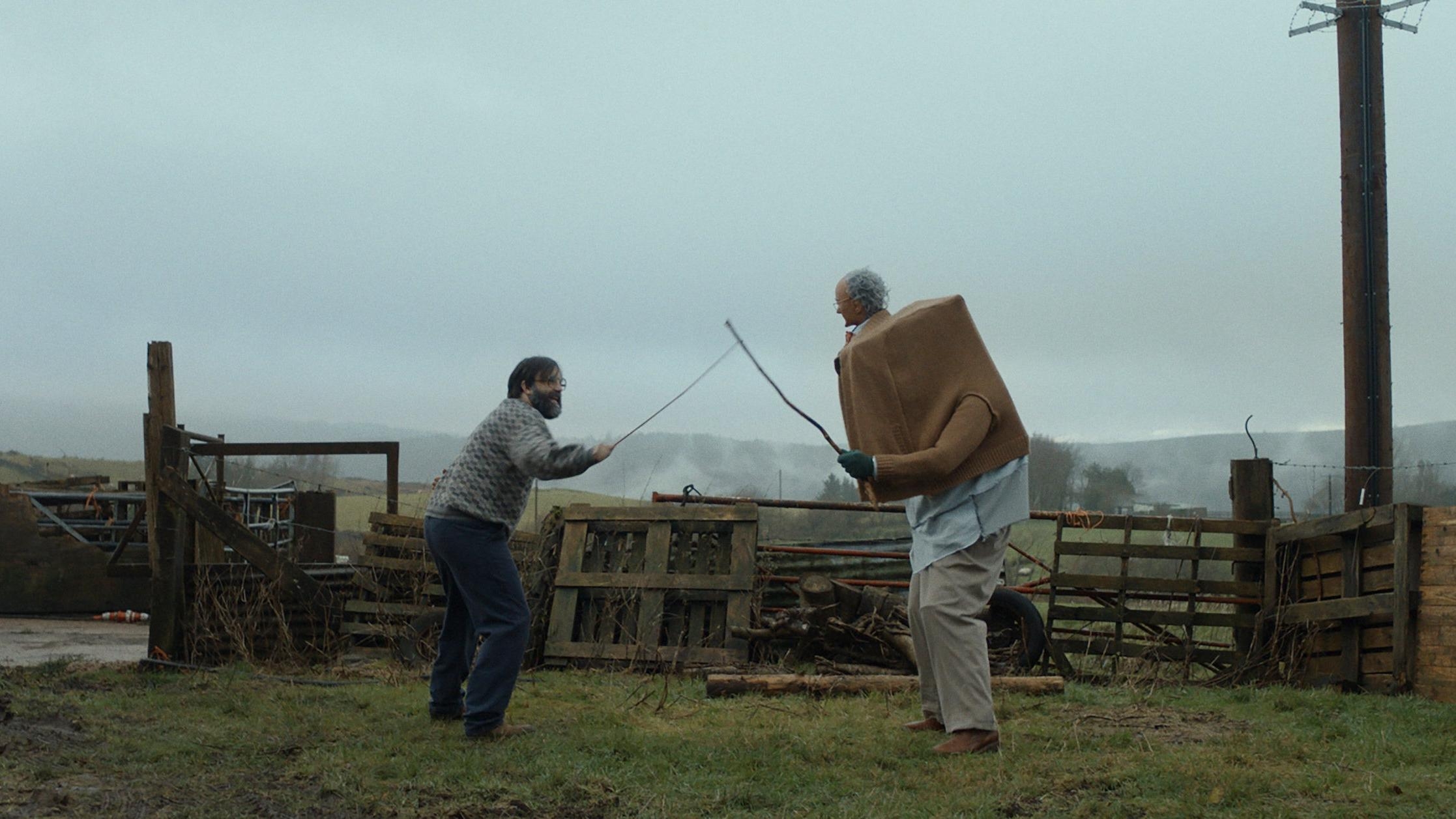Brian And Charles explores an odd (but charming) couple
David Earl and Chris Hayward expand their short film into a funny, idiosyncratic look at the complexities of companionship

Mockumentary filmmaking and outlandish high concepts are a match made in budget-conscious heaven, taking ideas that might be too weird or outlandish for producers to risk funding and presenting them in a lo-fi package that is consciously absurd—and therefore endearing. This mentality seems to be the driving force for director Jim Archer and co-writers/co-stars David Earl and Chris Hayward with Brian And Charles, a feature-length adaptation of their 2017 short film of the same name. Thankfully, their silly odd-couple premise develops enough traction to fill out a feature runtime, though not without some difficulties crossing the finish line.
Stylistically similar to 2014’s What We Do In The Shadows, this supposed human-interest documentary follows the exploits of Brian (David Earl), a Welsh recluse who spends his lonely days tinkering with inventions that never quite manifest into something revolutionary. Whether he’s converting a bicycle into a flying cuckoo clock that inexplicably catches fire, or dragging around trawling nets on his shoes in the local market for no discernible purpose, Brian’s odd proclivities make him a lovable outcast. Not to be dissuaded by his outsized ambitions, he endeavors to build a robot to help him around the house, despite struggling to even remember the term “artificial intelligence.” Inexplicably, his experiment works, and the strangely self-dubbed Charles Petrescu (Chris Hayward) is born.
Constructed from a pair of unaccountably realistic robot legs, a washing machine torso draped in an oversized dress shirt and cardigan, and a professorial mannequin head, Charles approaches the world with a childlike fascination. Speaking with Microsoft Sam inflection and a vocabulary developed from reading the dictionary, Charles makes fast friends with Brian, who teaches this new companion all the important things in life, like how to cook cabbages or when to dance a jig. In a word, the relationship is cute, punctuated by Earl and Hayward’s expertly timed deadpan delivery that makes even a scene as benign as throwing darts into an exercise of charming character work.
If the writers had been content to let their characters exist in a series of slice-of-life sketches in the vein of an extended television pilot, Earl and Hayward could have easily gotten away with doing so, but their desire to be a little more ambitious ends up being something of a mixed bag. Most intriguing is the film’s notion that Charles is not simply an offbeat pal to Brian, but is in fact most analogous to a child, with independent wants and needs that Brian will not always be able to fulfill within the confines of his isolated homestead. When he starts to act out against his creator, picking fights and isolating with angsty metal music in the walking washing machine’s equivalent of teenage rebellion, that willful testing of boundaries battles with Brian’s desire to protect and keep Charles to himself.











![HBO teases new Euphoria, Larry David, and much more in 2026 sizzle reel [Updated]](https://img.pastemagazine.com/wp-content/avuploads/2025/12/12100344/MixCollage-12-Dec-2025-09-56-AM-9137.jpg)




























